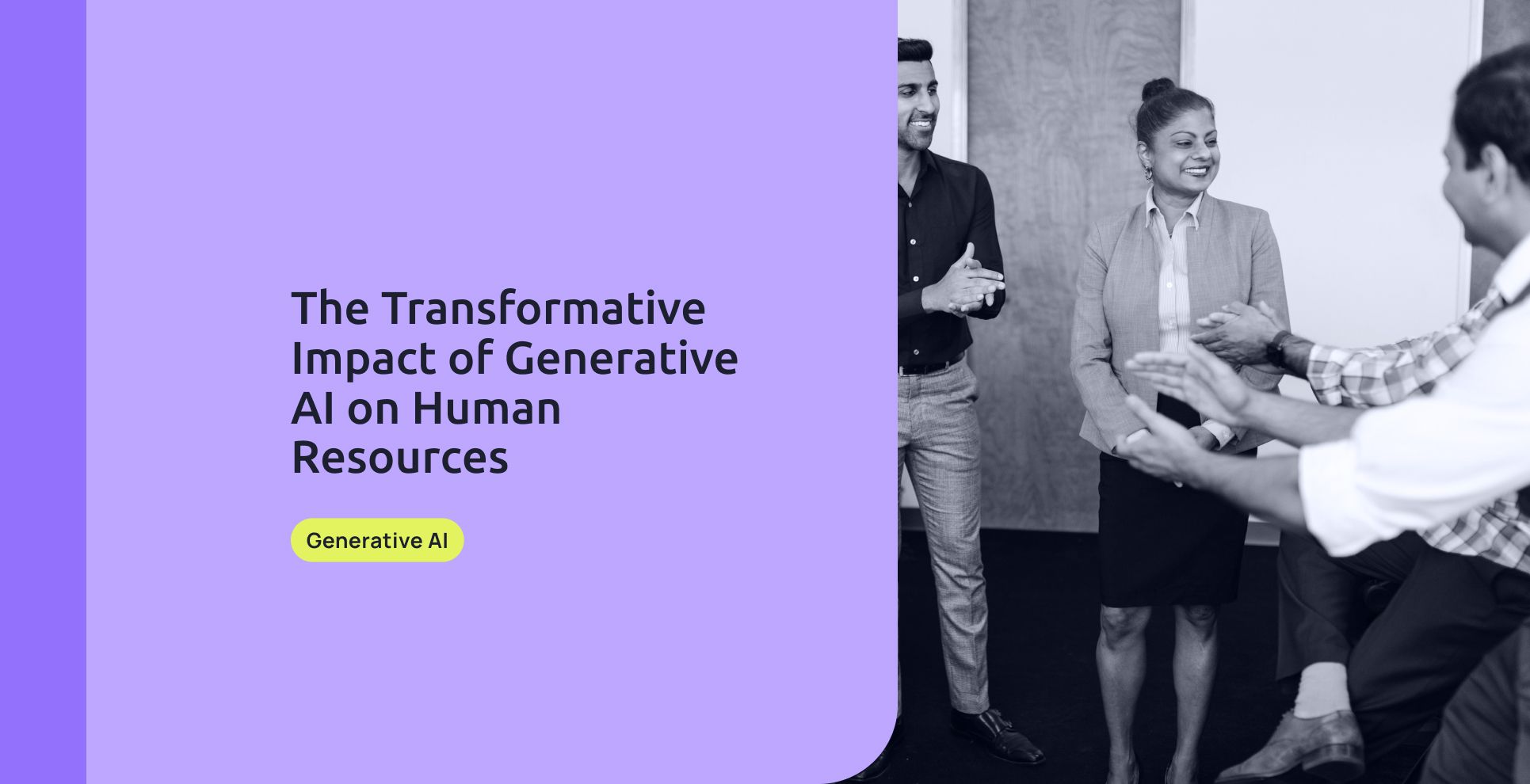Talent Management Evolution
In the rapidly evolving landscape of human resources (HR), technology plays a pivotal role in driving innovation and transforming traditional practices. One technological advancement that is revolutionizing HR is generative artificial intelligence (AI). Generative AI combines the power of machine learning algorithms with creative capabilities, enabling HR professionals to reimagine and optimize various aspects of their work.
From recruitment and employee development to performance management and strategic workforce planning, generative AI is reshaping HR practices and unlocking new organizational possibilities.
Amidst this wave of transformation, it is crucial to recognize the enduring importance of the human element in HR. While generative AI brings unprecedented efficiency and insights, there are fundamental aspects of HR that cannot be replaced by technology alone:
- Human intuition
- Empathy
- Ability to connect with employees on a personal level
These qualities are irreplaceable factors that must be upheld. In this article, we will delve into the transformative impact of generative AI in HR while also highlighting the indispensable role of human expertise and the irreplaceable elements of HR that technology cannot replicate.
Revolutionizing the Recruitment Process
Recruitment holds immense significance within human resources, and the introduction of generative AI has sparked a remarkable transformation in this domain. Traditional methods of reviewing resumes and conducting interviews have long been considered time-consuming and vulnerable to biases. However, generative AI algorithms have emerged as catalysts for change by analyzing extensive datasets encompassing candidate resumes, job descriptions, and historical hiring patterns. Through this analysis, these algorithms can uncover hidden patterns and preferences that efficiently match candidates with the most suitable positions.
HR professionals are empowered to make more informed hiring decisions, resulting in enhanced outcomes in talent acquisition. Take this into account: well over 50% of all corporate spending is on salaries (the US payroll is around $15 Trillion), and these “judgmental decisions” cost companies a lot of money.
Limitations of Generative AI in Human Resources
While this technological advancement brings undeniable benefits, it is important to recognize that certain aspects of recruitment, such as cultural fit, rely on human subjectivity. The feelings, perceptions, and human connections that contribute to assessing cultural fit cannot be replicated by artificial intelligence, at least not at present. When seeking a candidate, organizations look for more than just qualifications; they seek a cultural fit beyond data, graphs, or technology. The sensations, looks, tones, words, and gestures inform the assessment of cultural fit. For example, at Light-it we have a Talent Management department that, in addition to using various tools to make our processes (e.g., Recruiting, Mental Health Care) more efficient, the human factor is irreplaceable. It's essential to preserve the human touch in recruitment processes, especially in the technology industry, which is so demanding and competitive.
Opportunities in Applying Gen AI in Talent Management
Personalized Employee Development:
In today's dynamic work environment, many employees often struggle to navigate their growth paths within organizations. This is where generative AI is revolutionizing the landscape of employee development. By leveraging AI algorithms to analyze individual employee data, such as performance metrics, skills assessments, and career aspirations, organizations can now provide personalized recommendations for training, mentorship, and growth opportunities. This tailored approach addresses the challenge of employees not knowing how or where to grow within their companies, ensuring they receive the necessary support and guidance to advance their careers. With generative Artificial Intelligence, HR professionals can proactively identify areas for improvement, suggest relevant development programs, and create individualized plans that empower employees to reach their full potential and contribute more effectively to the organization's success.
Feedback and Performance Management:
AI in employee performance and feedback processes brings advantages such as data-driven insights, objective evaluations, and timely feedback. AI algorithms can analyze large volumes of data, enabling HR professionals to make informed decisions and identify areas for improvement. However, there are concerns regarding bias in AI algorithms, the potential loss of the human touch in feedback discussions (despite ChatGPT being a great friend), and concerns regarding data privacy and security. Striking a balance between AI and human involvement is crucial to harness the benefits of AI while addressing these challenges and ensuring a fair and effective performance management system.
Enhancing Employee Engagement: Leveraging Generative AI for Maximum Impact
Generative AI enhances employee engagement by analyzing employee sentiment to prevent burnout or other mental health issues and provide feedback and communication patterns. However, it is important to note that while generative AI can provide valuable insights and support, it does not replace the fundamental understanding that human motivation ultimately depends on an organization’s actions and specific initiatives. While generative AI can help identify areas for improvement and suggest interventions, the company's implementation of concrete actions and initiatives truly impacts employee motivation and engagement. The human element remains essential in creating a positive work environment and fostering strong employee-organization relationships. By combining the insights from generative AI in education with thoughtful human interventions, organizations can effectively enhance employee engagement and create a workplace culture that promotes satisfaction, motivation, and overall success.

Insights about Gen AI in Human Resources
Generative AI is revolutionizing HR practices, transforming traditional processes, and empowering HR professionals to become strategic partners within organizations. However, it is important to recognize that the role of HR professionals remains indispensable and cannot be fully replaced by technology. While generative AI offers valuable insights and streamlines certain tasks, it cannot replicate the human touch and the essential qualities that HR professionals bring to their work. The power of words, empathy, care, and the personal effort to create the best employee experience cannot be substituted by any technology. HR professionals possess unique skills, such as understanding emotions, building relationships, and addressing individual needs, that are vital for fostering a positive work environment. Their ability to connect with employees, address concerns, and provide guidance and support is crucial for maintaining a strong company culture and ensuring employee satisfaction. Generative AI can complement HR processes, but the harmonious integration of technology and human expertise drives the success of HR initiatives and creates a thriving workplace.
In conclusion, regardless of your role or position, AI has the potential to enhance your work performance. Whether you're a data analyst, marketer, or in any other field, AI provides valuable tools and insights to improve productivity, efficiency, and decision-making. Integrating AI into your workflow allows you to expand your capabilities, automate processes, and achieve better outcomes. Embracing AI technology opens new opportunities for growth and success in diverse industries and professions.

